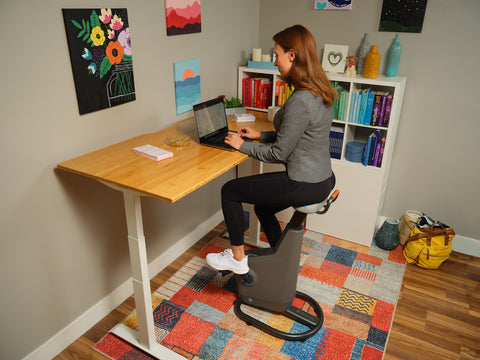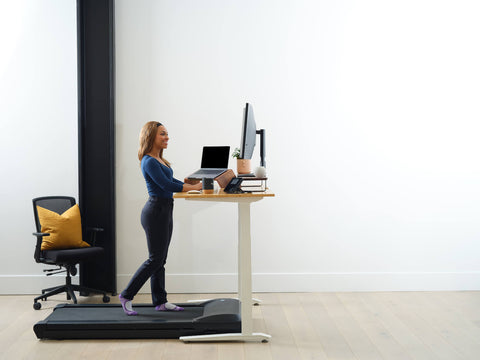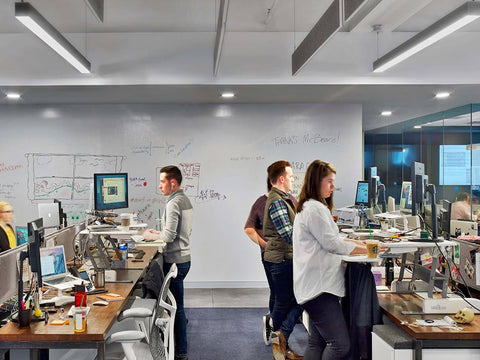Productivity means different things to different people. To some, it means finishing a given quantity of tasks within a set timeframe. A worker who finishes a hundred tasks, in this case, is considered to be more productive than a colleague who finishes 80 tasks, for example.
To others, productivity means doing quality work (top priority work) and exceeding set expectations within a reasonable timeframe. Quality overrides quantity in this case, so a worker who finishes one top-priority task is considered to be more productive than a colleague who completes two or even more low-priority tasks.
Although neither concept is wrong, maybe there is a better way to look at productivity: Seeing it as a measure of how efficiently workers use their time and effort. In other words, productivity should be defined as workers doing the right things, at the right times, and with the right tools to achieve set objectives promptly. Here are 4 productivity tips ways to get your team (or yourself) back on the right path:
1. Invest in smart productivity tools
The more efficient the tools you use are, the easier it will be for you to prioritize tasks and plan your work. You will finish tasks quicker, making the quality of your work better. There are many virtual productivity tools that you can add to your workstation, some for free and others at a small subscription fee.
One of the most essential productivity tools to have is software to help you convert to PDF all your Excel and Word documents. The versatility of PDFs makes them great for record-keeping, paperless billing, encrypting and sending invoices, and converting paper documents to digital records without typing everything by hand. They make it easier and more convenient to share project data especially for digital businesses and remote teams.
Others include:
- Project management software such as Trello. This tool provides team leaders with workflow organization that they need to stay on top of team projects without compromising productivity.
- Note-taking applications such as Evernote. They help you to note down, archive, and keep track of ideas. You can integrate these tools into your web browser so that you can annotate important content from webpages.
- A to-do app such as Google Calendar helps you plug in time for tasks, schedule meetings, and stay within set deadlines especially for long-term projects. Time-tracking software, e.g. Toggl, synchronizes your activities with your cloud storage in real-time to help you keep track of your billable hours and analyze your productivity.
2. Learn to manage interruptions and distractions
If you are back in the office, it is hard to create a distraction-free work environment. Or if you’re still working from home, you’re surrounded by a whole different set of distractions. This is why you need a strategy for managing your most common distractions. The greatest distraction in the digital era is your smartphone. Start by turning all phone notifications off. You can then schedule a time for responding to any missed calls, voicemails, or text messages preferably after reaching reasonable milestones or progress in your workday.
Then there is this hotly debated distraction: Multitasking. Many people would disagree with this but, according to experts, your work tasks morph into distractions whenever you have to break your concentration from one task to focus on another task. Running many tasks simultaneously gets you disorganized, interrupts your line of thought, slows you down, and messes your productivity big time. Learn to complete one task at a time.
If you work in a noisy office, you can minimize noise distractions by playing “white noise” or classical music through headphones. White noises drown unwanted noises and help you focus on the tasks at hand. Also, make it clear to your colleagues that you are not in the mood for unnecessary distractions and chit-chats whenever you are working at your desk.
3. Stay healthy
An unhealthy worker is an unproductive worker. Take good care of your health by exercising regularly. If you don’t have the time or the money for a gym membership, biking or walking to/from work can be a good workout option for you. Or move while you work with a treadmill or bike desk. Apart from that, you need to limit your consumption of unnecessary and unhealthy snacks during the workday. Try to eat healthy foods that will not only keep your body healthy but also keep your mind sharper and more focused. You should aim to drink at least a liter of water every day and sleep at least 8 hours every night.
4. Become an avid reader
Reading is a proven way of reducing stress. It allows you to let go of life’s troubles, lose yourself in the storyline, and relax as a result. A relaxed mind is a healthy and productive mind. On top of that, reading is a great way of exercising your brain “muscles”. It has the same effect on growing the strength of your mind as gaming or solving puzzles.
Besides encouraging cognitive stimulation, reading is also a sure way of adding extra words under your belt so that you can become more articulate and confident in your professional life. It equips you with new snippets of information that can help you handle new challenges better and faster. It increases your thinking skills too.
Bottom line
Learn to communicate effectively and be honest with yourself. If you are not sure about anything, ask someone. If you are falling behind in most projects, be open to evaluating your work performance. Be responsible for your weaknesses and get the most out of your strengths. Push yourself now to apply these productivity tips to your daily life and you will start to meet your goals.
By: Sandra Whitney, HRCloud.com









